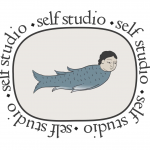No coach should underestimate the value in hiring a good copywriter. More than most other careers, as a coach you’re heavily reliant on the power of your written marketing materials to build credibility.
This is because most other industries come with very specific qualifications people are expected to have before someone will hire or work with them. Accountants, lawyers, architects, etc, all sit and pass very specific exams to show that they’re qualified to do the job, be it your taxes, your contracts, or your property plans.
As a coach, however, you’re falling back on less tangible evidence, like your experience with past clients, to show you’re skilled enough for the job. And those are proven through (a) how you talk about yourself face-to-face and, crucially, (b) write about yourself online, whether it’s a landing page, an article series, an email funnel, newsletter, or social media posts.
For that reason it’s worth taking the time to find and hire a skilled copywriter for coaches, whose experience and skill set are tailored towards what you provide.
All great copywriting involves a balancing act of different skills; in the world of coaching, extra emphasis is placed on the art of persuasion, and the ability to sell the person rather than a discrete product or service.
So I’ve created this guide exploring 5 things you should expect from a coaching copywriter before you invest your time and money into hiring them.
Coach copywriters understand the value of good coaching.
One of the main differences between good and bad writing, on any topic, is a depth of understanding in the field. This is not so that the copywriter can show off their knowledge, or pad out the article or webpage with extra word count to court the SEO algorithms.
No - it’s because (as we’ll explore in more detail below), it allows them to step inside the mind of the people the writing is designed for. They can then respond to the client’s specific needs.
Coaching is no different. There are a wide range of different coaching styles and niches. All of them involve different specific needs. A good copywriter will be able to show why your coaching programme is the perfect solution to their problems.
Someone looking for a career coach will have professional goals in mind, perhaps dovetailing with a financial lifestyle. Someone who wants to hire a relationship coach will have more abstract goals or needs relating to their romantic or sexual partners. A life coach could be required to help the client through a difficult or traumatic life period. Back in 2018, while working as a business coach, I was working with a client and realised that her specific need involved a combination of financial planning (making sure she had the cash flow for everything) and emotional support (managing lots of different projects at once, with minimal headspace). There were several fundamental needs at play and so I had to devise a specific coaching system to balance them all.
Understanding the bridge between these complex needs and the tools coaches develop to solve them is the key to simple, persuasive copywriting for coaches.
They understand the art of selling.
Once they understand your client’s needs and know what to write about, the big question is: how good a writer are they?
The secret to excellent copywriting - and this applies to email funnels and social posts as much as to landing pages and blogs - is that every sentence should make the reader want to read the next one.
But what’s the point of keeping them reading if they get to the end and nothing happens next? Good writing also draws some action from the reader. This could be any of the following:
- Booking an initial call/consultation
- Signing up for your coaching programme
- Downloading a cheat sheet in exchange for an email address
The ability to provide the information a potential client is looking for online, whilst leading them towards this action, is what separates the very best copywriters for coaches!
They write clearly, concisely and persuasively, putting care into every sentence.
I don’t know a single person who, when searching for a recipe online, actually enjoys reading the entire life story of the recipe giver and their experience visiting India, etc etc... before getting to the actual recipe. Those recipe pages do that to pad out word count so that the Google algorithms favour them.
Instead, people searching for information on your coaching site want answers quickly and clearly. At the same time there are many different ways of phrasing the same thing. Through subtly persuasive language, even things like your pricing page or your description of past clients/projects can draw purchase intent from your readers. In stating your prices, do you also show the potential client what value they get in working with you specifically?
Personally, after I write a piece of copy I like to examine every single sentence to see: (a) whether it’s necessary, (b) whether it captures what I want to say in the clearest way, and (c) whether it draws the response I want from the reader. Detailed editing is a hugely important part of the copywriting process but so many writers ignore it!
And good copywriting doesn’t end at the point of delivery - even after a piece of writing has been posted or sent, a perfect copywriter has the tools to analyse its performance and keep tweaking it.
They use data analysis and good SEO practices to supply content for existing search demand.
I go into more detail on SEO in my piece on SEO copywriting services. But for now you should bear in mind that a good copywriter will also know how to turn existing search demand into organic website growth through good SEO practices.
How does this work?
If a copywriter knows what the customers of their client (the coach) want, they can use this to analyse possible target keywords. This applies more to certain types of writing (e.g. SEO articles or Google ads) than others, but at some point it’s a valuable tool you will want to leverage in your copywriter.
Very quickly - what is a “keyword”? Very simply, it’s what people are typing into their search engine (e.g. Google), so examples for coaching might include the following:
“Creative coach London”
“Relationship coaching Manhattan”
“How to hire a life coach”
In the context of life coaching, people are often looking for experts local to them - eg life coaches in London, Manhattan etc. This will be related to questions of trust and also perhaps also wanting to build a relationship with a real person, rather than simply wanting to consume a normal digital service.
When exploring what people are searching for online (using a free tool like Google Analytics, or a paid one like Semrush), there are various factors to consider in deciding whether a particular keyword (the actual search) is something you could write targeted content for, so that you have relevant people landing on your website through SEO (“Search Engine Optimisation”).
Firstly, you want to consider whether there’s enough volume, i.e. enough people searching for it each month to suggest that, if you rank high on Google for it, you’ll get lots of new visitors (i.e. potential clients) onto your site.
Second, you want to explore how competitive that keyword is, i.e. how likely are you to get to the top of Google searches, even with the best written article on the subject. If you’re reading this I’m assuming you’re either an individual coach or a small coaching agency, and so your website is currently not very competitive (this is nothing personal! Most websites are relatively uncompetitive!). That doesn’t mean you can’t use SEO to drive organic traffic; it just means you have to find the right niches to target. A good copywriter will understand and find these.
Third, and perhaps most subtle, a good copywriter for coaches especially will be able to discern the intent of the people searching for that keyword, to work out whether they having enough of a transaction or commercial intent to purchase your service. E.g., above, my “how to hire a life coach” keyword suggests strong intent to purchase, because of the word “hire”, which means they’re already deciding they want to spend money.
By combining these factors, a good coaching copywriter can uncover a wealth of opportunities for you to grow your website’s organic traffic!
They offer a wide range of skills / products
If you’re going to invest into good copywriting for coaches, you can maximise the benefits of the investment by hiring someone who can offer a wide range of skills. A great marketing campaign covers lots of bases so that all assets feed into one another.
These skills or products could include:
- Content marketing resources (e.g. worksheets) you can give away for free in exchange for email addresses
- Sales funnels (via email) you can use to turn readers into paying clients
- SEO focused articles tailored towards what your target clients are searching for, to grow organic traffic
- Per-per-click (PPC) ads, if you want to skip the (SEO queue) on Google and jump straight to the top of the rankings
- Eye-catching social media posts that build your coaching brand
- Cold pitch emails if you have a specific group of potential clients you want to target with direct sales
If you want to explore any or all of these, or you want to learn more about our process and pricing, feel free to get in touch with us at Self.
We’re passionate about writing and know how to generate enquiries for individual business owners and freelancers – and love working with creatives and entrepreneurs.


